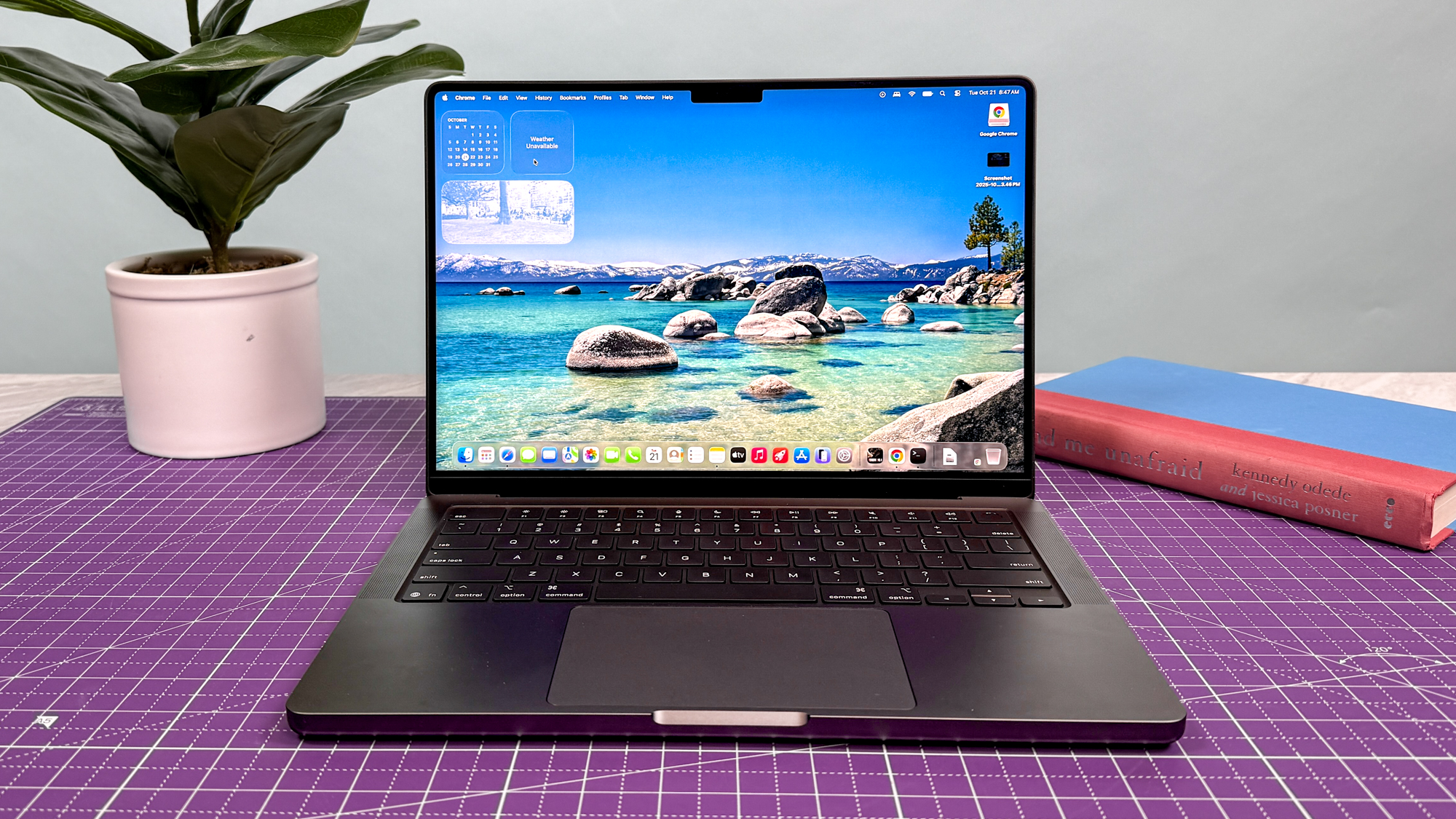What is blue light? Experts share real effect on sleep plus top tips to reduce its impact
Blue light isn't the enemy but you should still be conscious of nighttime scrolling, say experts
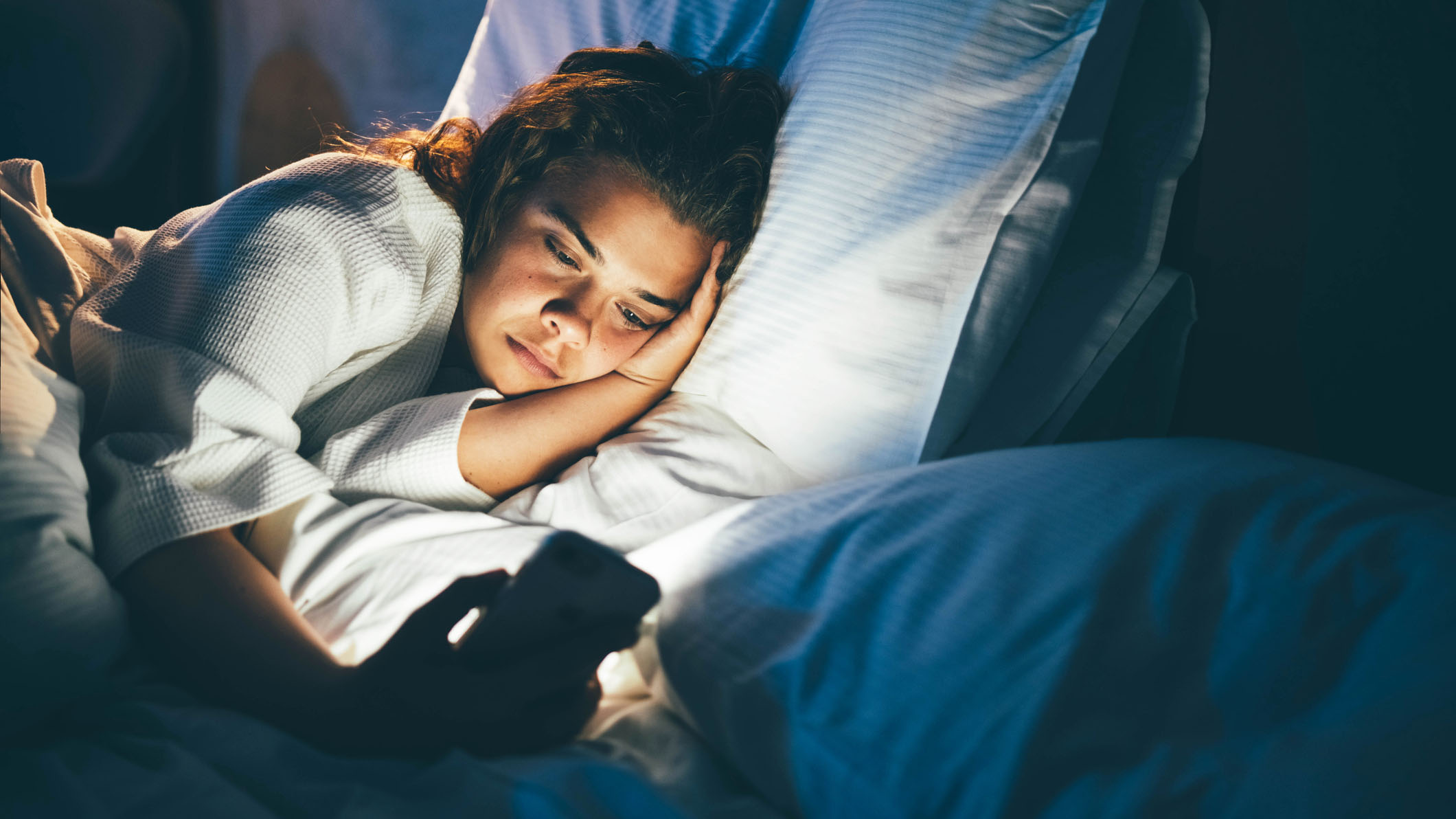
I'll be the first to admit, I spend more time than I'd like scrolling in the evening. I do my best to follow a relaxing screen-free nighttime routine, but some nights the screentime gets one over me.
Luckily, I sleep on one of this year's top-rated mattresses and get plenty of fresh air and movement during the day, so this evening light exposure doesn't completely ruin my sleep. However, I'm curious about the impact blue light has on my overall sleep quality.
Online advice around blue light is conflicting. Some sources say it's sure to ruin your sleep, while others say it's not so bad.
So, I've dug into studies and reached out to Dr. Michael Gradisar, head of sleep science at Sleep Cycle, and insomnia and sleep therapist Dr. Anna Joyce to set the record straight. Here's what these two experts want you to know about blue light and sleep...
What is blue light?
Blue light is part of the visible light spectrum and accounts for about one-third of all light we see as humans.
This type of light influences alertness, hormone production and sleep cycles.
Blue light comes naturally from the sun, the biggest source of blue light we consume, but it can also come from artificial sources like smartphone screens, televisions and fluorescent and LED lights.
Get instant access to breaking news, the hottest reviews, great deals and helpful tips.
How does blue light impact sleep?
Bright light, i.e blue light, interferes with the circadian rhythm by suppressing production of the sleep-inducing hormone melatonin.
When the brain identifies light, it sends signals to the body telling it to be alert rather than sleepy. So, in theory, blue light exposure in the evening should delay sleep onset.
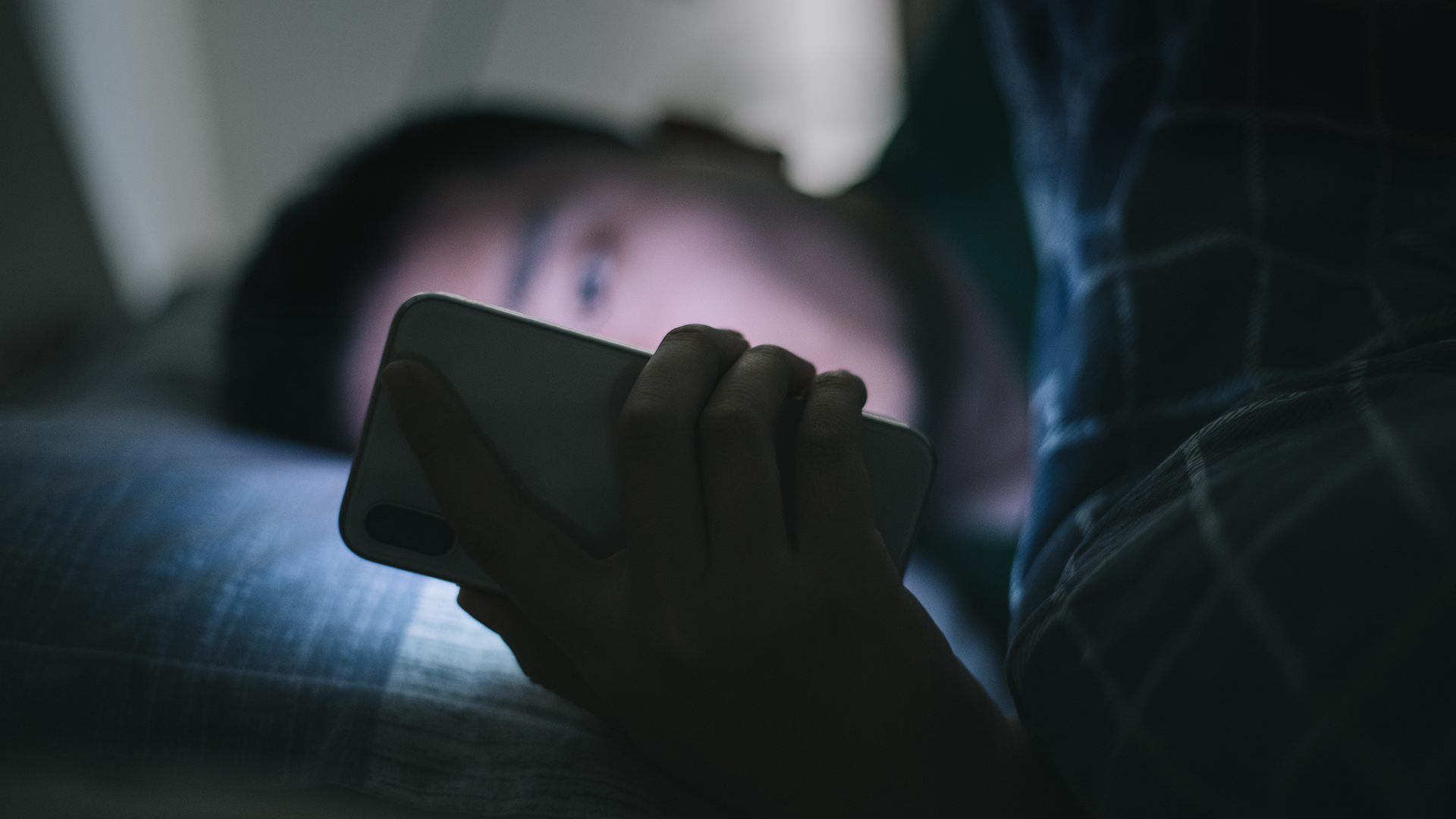
On the flip side, it helps us feel alert come morning. Hence, exposing yourself to natural daylight first thing is a key tip for fighting morning grogginess and getting up and at 'em, which in turn helps us sleep better at night.
The common assumption is blue light is bad news for sleep — and with right reason. A 2022 systematic review by Swiss researchers of studies investigating the influence of blue light exposure on sleep, performance and wellbeing concluded blue light could have negative effects such as a decrease in sleep quality and sleep duration.
However, recent research by The Conversation suggests blue light isn’t as bad for sleep as we’ve previously been led to believe.
Sleep experts from Sweden, Australia and Israel found blue light exposure only delayed sleep by 2.7 minutes — hardly substantial.
Can blue light really ruin sleep?
Experts, including Dr. Gradisar and Dr. Joyce, now agree that although light from screens does delay melatonin release, it only makes a minimal difference. Light from screens just isn’t bright enough to significantly affect sleep patterns.
"For blue light to meaningfully shift a person’s sleep timing, the light source needs to be at least ten times brighter than what’s emitted from phones, tablets, or other devices," says Dr. Gradisar.
Rather, it is our cultural inability to shut down screens at bedtime, as we're sucked into unceasing social media feeds, that impacts our sleep, particularly how long we sleep for.
Research from Dr. Gradisar shows the biggest sleep disrupter is delaying bedtime due to screen use rather than the light from the screens.
"Don’t fear using screens before bed — just time them wisely," he says. "While blue light from phones is often blamed, my research has shown that the biggest disrupter is actually delaying bedtime, not the light or the content from screens themselves."
"Watching TV or listening to a podcast as a wind-down routine can be perfectly fine, especially if it helps reduce nighttime overthinking, as long as it doesn’t cut into the number of hours of rest you get."
Ways to stop blue light ruining your sleep
Evening blue light is pretty much unavoidable in our modern world and, as tech gurus here at Tom’s Guide, we’re not ones to say get rid of your gadgets altogether. Instead follow these tips for sleeping well even after your screentime fix…
Be selective over what you consume
When I do fall into the trap of being glued to my phone in the evening, it's certainly harder to switch off.
Be it catching up with gossip in the group chat, online shopping or a doom scroll through Instagram reels, I rarely come away from my screen feeling sleepy.
Instead I'm thinking about the breakup of a couple I've never met, contemplating whether I really need that new outfit or dreaming of that holiday destination that was made to look oh-so perfect in a 30 second video.
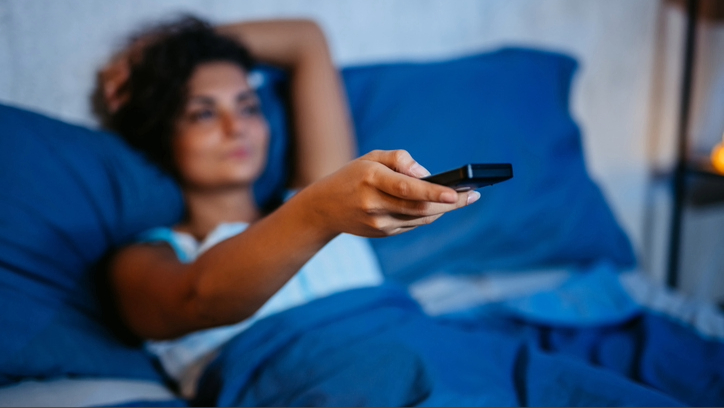
"The problem is that we usually use screens for engaging and alerting activities, like work, reading the news, or scrolling social media; all things which stimulate us and affect our mood," explains Dr. Joyce.
"The brain needs time to wind down in order to fall asleep so some transition time between screen use and bedtime is helpful."
Similarly, Dr. Gradisar recommends podcasts or watching TV for your bedtime digital fix instead of scrolling.
"TV is a passive device compared to phones. Many people fall asleep just fine after watching TV, with some drifting off while it’s on," he says.
Be disciplined around bedtime
There’s no serious harm in using screens as part of a nighttime wind-down routine — television programmes or films are a mainstay in many people's evenings.
But, as Dr. Gradisar's research shows, you need to be disciplined over your screen shut off time before bed to ensure it doesn’t eat into crucial sleep time.
That means having the self-control to flick up the TikTok app or turn off Netflix rather than hit 'play next episode' when bedtime rolls around.
A 2024 study by researchers at the University of Otago concludes we should keep screens out of bed for better sleep, rather than cutting them out in the evening completely.
This enforces a cut off point for screens — i.e. use them on the sofa, but put them down once you get into bed.
Consider blue light blocking tech
You can buy blue light blocking glasses and lamps that help minimize the glare of screens and prevent blue light from interfering with sleep.
I’ve been using a blue light blocking clip light (on sale for $29.99/£19.99 $25.49/£16.99 at Bon Charge) to read before bed.
I've found replacing my bright bedside lamp with this dim red light has been a game changer for helping me drift off immediately after closing my book.
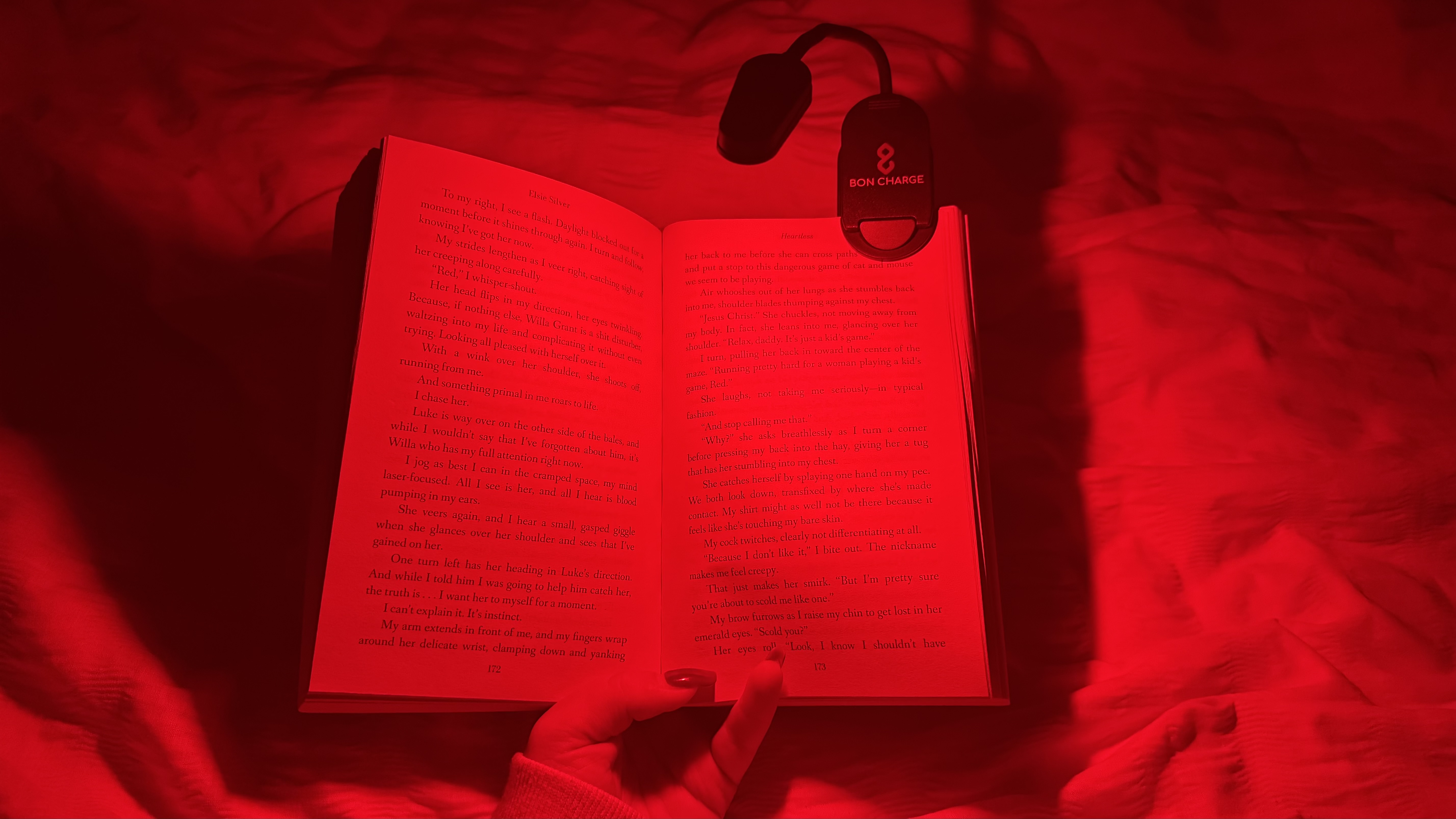
While the scientific studies around blue light blocking glasses are tenuous, our Tom's Guide team have tested the best blue light blocking glasses you can buy online right now.
These glasses are designed to filter out wavelengths that disrupt our circadian rhythms. Be their effectiveness placebo or not, we think they're worth trying if you're concerned about how blue light is impacting your circadian cycle. Plus, they won't break the bank.

Eve is a sleep tech product tester and writer at Tom's Guide, covering everything from smart beds and sleep trackers, to sleep earbuds and sunrise alarm clocks. Eve is a PPA-accredited journalist with an MA in Magazine Journalism, and has four years’ experience writing features and news. In her role as Sleep Tech Product Tester and Writer for Tom's Guide, Eve is constantly trying out and reviewing the latest sleep products from brands such as Apple, Garmin, Whoop, Hatch, Sleep Number, Eight Sleep, and Oura. A fitness enthusiast who completed the London Marathon earlier this year, Eve loves exploring the relationship between good sleep, overall health, and physical performance, and how great sleep tech can make that relationship even better.
You must confirm your public display name before commenting
Please logout and then login again, you will then be prompted to enter your display name.
 Club Benefits
Club Benefits





